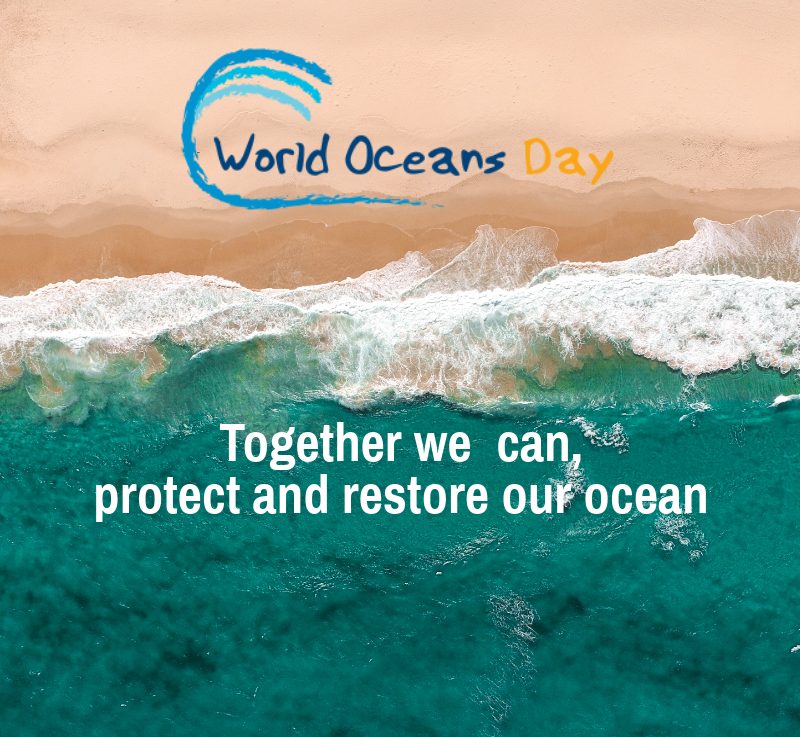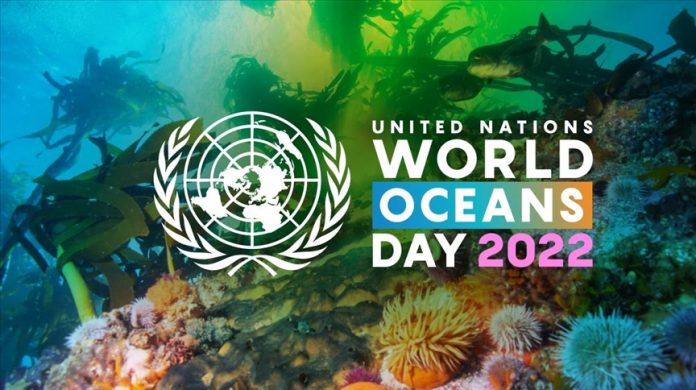World Oceans Day: Unless you’ve been attempting a superhuman effort to ignore the news recently, you’ll be aware that today, June 8, 2022, is World Ocean Day. But why are we honouring the seas in the first place? Why is the sea so important to lives on Earth?
In honour of World Ocean Day and its theme: Revitalisation: Collective Action for the Ocean, here are some reasons why we must protect the future of our oceans.

World oceans create millions of jobs
Ocean-based industries will employ over 40 million people globally by 2030. The fisheries sector is expected to account for the largest share of those jobs, followed by tourism.
The economic health of maritime industries is linked to the overall health of the oceans, of course. The ocean economy is vital in developing countries, home to most of the 3 billion people who rely on the sea for their livelihoods.
Climate change, pollution, and a lack of understanding of sustainable ocean stewardship approaches continue to jeopardise marine resources. This will limit the potential socio-economic benefits of those resources for future generations while also suffocating people’s current earning capacities.
World oceans are an essential source of food
Every day, billions of people across the world eat fish. It accounts for about a quarter of all animal protein consumed worldwide. Of course, seafood includes more than just fish, crustaceans, and other edible species. Cooking using a variety of algae and sea plants is also widespread.
Sodium, calcium, magnesium, and iodine are among the important elements found in seaweed, according to the UN Food and Agriculture Organization.
Furthermore, 1 gramme of protein from cattle requires 112 mL of water. The oceans, if properly managed and maintained, might be a vital component of a more sustainable approach to feeding the world’s rising human population.
World oceans provide oxygen
Half of the oxygen on Earth is produced by phytoplankton – these are small plant-like organisms that dwell in the water. They have chlorophyll to catch sunlight and employ photosynthesis to turn it into energy. Also, They produce oxygen as a byproduct, just like terrestrial plants. They also consume carbon dioxide, transferring roughly ten gigatonnes of carbon from the atmosphere into the ocean each year.
It helps regulate the climate
The ocean absorbs vast amounts of heat from the sun. “More than 90% of the warming on Earth over the past 50 years has occurred in the ocean,” according to the US National Oceanic and Atmospheric Administration.
That heat tends to be intense nowadays, with the water nearest the surface warming the most. Sea currents then transport that heat around the world, north and south, towards the poles. As some seawater evaporates, it becomes denser and heavier due to its relatively higher salt content. That causes it to sink, taking some of the warm water more profound.
Some currents are directly responsible for specific climatic effects. One example is the Gulf Stream, which takes warmer water from the Gulf of Mexico across the Atlantic to Europe. If the Gulf Stream was disrupted, much of the western part of Europe – including the UK, Ireland and France – could become very cold.
Its diversity is incredible
It’s not just a source of food. The ocean is also home to an abundance of life. While estimates on the number of species that live in the sea exist, no one knows what that number is.
According to the US National Library of Medicine’s National Institutes of Health, “91% of species in the ocean still await description.” Many yet-to-be-discovered creatures living in the sea could quickly run into the millions. This fascinating deep-water creature could yield invaluable insights into how marine animals were able to adapt to life on land, as the way they move their fins resembles the way many four-legged creatures walk.
It regulates rainfall and droughts, holds 97% of our planet’s water, and absorbs CO2, helping keep the carbon cycle balanced. From food to jobs, it’s a lifeline for billions of people, too.
But the ocean is also a beautiful natural environment with an invaluable recreational role to play. And with research showing a connection between spending time in the natural world and lowering your stress levels, that might be something else worth holding on.










